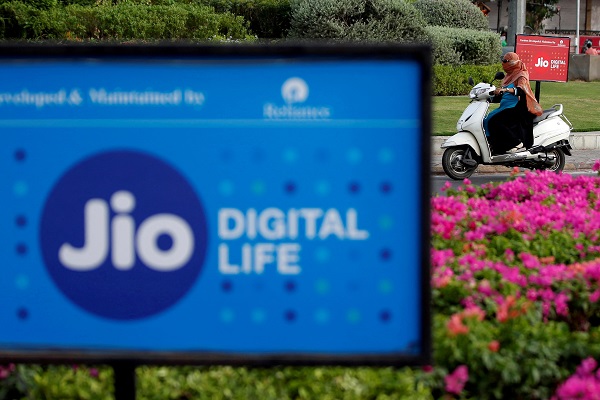Brainbees Solutions coming with IPO to raise Rs 4288.74 crore

Brainbees Solutions
- Brainbees Solutions (Firstcry) is coming out with a 100% book building; initial public offering (IPO) of 9,22,30,945 shares of Rs 2 each in a price band Rs 440-465 per equity share.
- At least 75% of the issue will be allocated to Qualified Institutional Buyers (QIBs), including 5% to the mutual funds. Further, not more than 15% of the issue will be available for the non-institutional bidders and the remaining 10% for the retail investors.
- The issue will open for subscription on August 6, 2024 and will close on August 8, 2024.
- The shares will be listed on BSE as well as NSE.
- The face value of the share is Rs 2 and is priced 220.00 times of its face value on the lower side and 232.50 times on the higher side.
- Book running lead managers to the issue are Kotak Mahindra Capital Company, Morgan Stanley India Company, BofA Securities India, JM Financial and Avendus Capital.
- Compliance Officer for the issue is Neelam Jethani.
Profile of the company
The company is India’s largest multi-channel retailing platform for Mothers’, Babies’ and Kids’ products, in terms of GMV, for the Financial Year 2024, with a growing presence in select international markets. In India, it sells Mothers’, Babies’ and Kids’ products through its online platform, company-owned modern stores, franchisee-owned modern stores and general trade retail distribution. It launched the FirstCry platform in India in 2010 with the goal to create a one-stop destination for parenting needs across commerce, content, community engagement, and education. It named its platform “FirstCry” because a baby’s first cry is a special moment for parents, and it aims to make such moments of the parenting journey filled with joy and happiness. It seeks to develop a tangible, emotional, multi-year relationship with parents, especially mothers, with whom its first engagement begins from their baby’s conception (i.e., nine months before birth) and can continue until their child reaches about 12 years of age. The company operates in a retail category with high purchase frequency, in which children outgrow clothing sizes quickly and need consumables such as diapers and other baby products along with other needs that evolve with age. Thus, once parents establish a connection with it, they are likely to start a predictable and frequent transactional journey of about twelve years as their children grow.
Across the company’s platform, it offers products from third-party Indian brands, global brands, and its home brands. It has have created trusted home brands in the Mothers’, Babies’ and Kids’ products categories through its deep insights and understanding of the requirements of its customers, robust data analytics tools, in-house design and development capabilities and by leveraging the market recognition of the “FirstCry” brand. As a reflection of FirstCry’s strong brand recognition and customer trust, BabyHug, one of FirstCry’s home brands, is the largest multi-category Mothers’, Babies’, and Kids’ products brand in India in terms of GMV, for the Financial Year 2024. Further, it leverages its management team’s experience in creating and scaling up its home brands to help D2C Indian and global brands scale their business in India across direct-to-customer channels and modern stores. These brands will benefit from its expertise in creating and scaling brands and leverage its multi-channel distribution network, sourcing capabilities, supply chain infrastructure, and integrated technology ecosystem.
Proceed is being used for:
- Expenditure by the company for setting up new modern stores under the “BabyHug” brand; and setting up a warehouse, in India.
- Expenditure for lease payments for its existing identified modern stores owned and operated by the company, in India.
- Investment in its Subsidiary, Digital Age for setting up new modern stores under the FirstCry brand and other home brands of the company; and lease payments for its existing identified modern stores owned and controlled by Digital Age, in India.
- Investment in its Subsidiary, FirstCry Trading for overseas expansion by setting up new modern stores; and setting up warehouse(s), in KSA.
- Investment in its Subsidiary, Globalbees Brands towards acquisition of additional stake in its stepdown Subsidiaries.
- Sales and marketing initiatives.
- Technology and data science cost including cloud and server hosting related costs.
- Funding inorganic growth through acquisition and other strategic initiatives and general corporate purposes.
Industry overview
The Indian retail market grew at a CAGR of 12% between the Financial Year 2017 and the Financial Year 2020, to reach Rs 62-64 trillion (approximately $775-800 billion) by the Financial Year 2020. The rise in consumption and income, the growth of Emerging and Mature Income Households, and increasing demand from Tier 2+ cities and towns, supported by robust logistics infrastructure, led to the soaring growth of the retail market in India. However, the market was significantly impacted due to the COVID-19 pandemic in the Financial Year 2021. While the first wave of the Covid-19 pandemic impacted demand, the impact of second and subsequent waves of Covid-19 have been lesser owing to better preparedness of the administration and due to substantial vaccine coverage among the Indian population. Consequently, the retail market in India rebounded in the Financial Year 2023, growing by 10%, propelled by resurgent consumer demand, enhanced retail infrastructure, and easing of pandemic-related restrictions. This resilience continued into the Financial Year 2024, with the market growing by 7%. The retail market in India is expected to grow at pace with GDP to reach Rs 115-125 trillion (approximately $1.4-1.6 trillion) by the Financial Year 2029 growing at a CAGR of 8-10%. Approximately 80% of the Indian retail market was unorganized in the Financial Year 2024. Organized retail segment is growing faster than the unorganized segment due to the increasing footprint of organized brick and mortar retailers, robust growth of ecommerce in India and favourable government policies like GST, among others.
The e-commerce market in India has grown at a CAGR of approximately 26% between the Financial Year 2017 and the Financial Year 2020. As of the Financial Year 2024, the e-commerce market size in India was Rs 4,880-5,040 billion (approximately $61-63 billion) and is expected to grow at a CAGR of approximately 20% to reach Rs 12,480-12,640 billion (approximately $156-158 billion) by the Financial Year 2029, with e-commerce penetration at 10-12% in the Financial Year 2029. Rising internet penetration, higher disposable income, rising urbanization, and higher awareness and online services adoption are enabling the growth of e-commerce. Further, higher expansion in Tier 2+ cities and towns and the emergence of new e-commerce models such as Direct to Consumer (D2C) and value commerce will also drive the growth of e-commerce in India. E-commerce penetration in India is low at approximately 7% in the Financial Year 2024 when compared to China, the UK, and the USA, with e-commerce penetration of 31-33%, 27-29%, and 15-17% respectively. The COVID-19 pandemic led to two key behavioural changes among Indian consumers - more users started adopting e-commerce that led to a spike in new-user growth on e-commerce platforms and rise in order frequency of existing Online Shoppers due to growth in grocery purchase, growth of e-commerce long-tail segments, and increasing customer adoption of online channels across categories such as mobile, fashion, beauty, and home and furnishing.
Pros and strengths
India’s largest multi-channel, multi-brand retailing platform for Mothers’, Babies’ and Kids’ products: The company is India’s largest multi-channel retailing platform for Mothers’, Babies’ and Kids’ products, in terms of GMV, for the year Financial Year 2024. Its GMV increased to Rs 91,211.28 million in the Financial Year 2024 from Rs 72,576.34 million in the Financial Year 2023 and Rs 57,994.63 million in the Financial Year 2022. Its scale in multi-channel retailing in India, along with a large parenting community on its platform provides it with a variety of advantages, such as a large volume of organically generated content, brand affinity, the opportunity to launch additional home brands, and the potential to improve its margins, as it benefits from economies of scale. Its multi-channel retail model lends itself well to Mothers’, Babies’ and Kids’ products categories, providing a “touch and feel” experience through modern stores and also the convenience of ordering online through its online platform. Its multi-channel approach also benefits customers who follow a “research online – purchase offline” shopping behaviour.
The company’s platform has powerful network effects driven by content, brands and data: The company’s content-led strategy enables engagement with parents early in their parenting lifecycle through its FirstCry.com parenting platform. Its customers value the content on its platform and further enhance it by adding their own experiences to the platform. This leads to a virtuous cycle of new customer acquisition and enriched content. Its FirstCry.com parenting platform features video and written content on a wide range of topics from pre-pregnancy to pregnancy and parenting. This content is generated not only by other parents, but also by specialists such as doctors, gynecologists, and nutritionists. Its focus on content and word-of-mouth recommendations from parents about its platform also attracts many customers to its platform organically. The inputs it receives from its content and community platform also helps it identify product and pricing gaps in the Mothers’, Babies’ and Kids’ market. Its FirstCry mobile application in India had been downloaded more than 127 million times, 97 million times and 70 million times as of March 31, 2024, 2023 and 2022, respectively. Its unique content strategy feeds into the transaction funnel and creates a strong flywheel effect, as increased content consumption and community engagement leads to increased customers, which in turn leads to more transactions.
Brand affinity, loyalty and trust of customers in the FirstCry brand: The brand affinity that it has built with its customers attracts them to engage on its platform and increases customer traffic. Its brand affinity is demonstrated by its Annual Unique Transacting Customers’ base, which has grown to 9.11 million for the Financial Year 2024 from 6.86 million for the Financial Year 2022. Leveraging its brand strength, it has been able to and will continue to add more product and service adjacencies on its platform which it expects would further increase its customer base. Further, its strategy of expanding into select international markets and adjacent categories (such as education) helps improve its brand visibility. Its customers’ brand loyalty is demonstrated by its repeat customers. It endeavors to provide emotional companionship across the parenting journey from the conception stage until a child reaches about 12 years of age, through its online platform, modern stores, preschools, and parenting community.
Combination of curating growing home brands and relationships with third-party brands: Through the company’s online platform and modern stores, it offers customers a variety of products, ranging from products of global and domestic Mothers’, Babies’ and Kids’ brands (such as Medela India, Chicco, Mee-Mee and Funskool (India)), “mompreneurs” (i.e., mothers who operate home-based businesses) and its own home brands. Its diverse product offering across third-party and home brands has significantly contributed to the growth of its revenue from operations in the last three Financial Years. It maintains long term and mutually beneficial relationships with brands. It has a dedicated brand partnerships team that works with brands to build mutually beneficial marketing campaigns that leverage its experience and data to grow the childcare products ecosystem, providing brands with channels for customer acquisition and opportunities for business growth. Further, it has created its own baby and children product home brands for India and international markets such as BabyHug, Babyoye, Cutewalk and Pine Kids, among others, in the mid to premium category.
Risks and concerns
Exposed to risks associated with leasing real estate: The company sells its products through modern stores comprising franchisee modern stores, FirstCry-owned multi-brand stores and exclusive home brand stores, and online channels across its mobile applications, website and mobile website. It generally enters into lease/leave and licensing agreements with initial terms varying between five to nine years. Certain of its lease/leave and licensing agreements contain an early termination clause that permits it to terminate the lease/leave and licensing agreement early for the reasons specified therein. While it has renewal options for all of its leases/licenses, it typically need to renegotiate the terms of renewal with the lessor/licensor, who may insist on a significant modification to the terms and conditions of the lease/leave and licensing agreement. Where it does not have an option to renew a lease/leave and licensing agreement, it must negotiate the terms of renewal with the lessor/licensor, who may insist on a significant modification to the terms and conditions of the lease/leave and licensing agreement.
Do not have exclusive agreements with contract manufacturers, suppliers and third party brands: The company does not contractually require all its manufacturers to manufacture products exclusively for it or require all of its suppliers to supply products exclusively to it, and accordingly, some of them may choose to manufacture products for, or supply products to, other parties including its competitors and on better commercial terms than agreed with it. Further, it does not have exclusive arrangements with third party brands for offering products on its platform. If these brands terminate their relationship with it, the quantity and variety of products that are offered through its multi-channel retailing platform may decline, customers may purchase less frequently from it or not at all. As a result, its business, results of operations, financial condition and cash flows may be adversely affected.
Rely on services of third-party data center hosting facilities: The company relies on services from third parties, such as for its cloud infrastructure and telecommunications processes, credit card processors, disaster recovery services, payment gateways, payment aggregators, supply chain and courier counterparties, content delivery networks, SMS service providers and online map providers, and those services may be subject to outages and interruptions that are not within its control. In addition, in the past, it has experienced down periods when its third-party credit card or payment mobile app processors are unable to process the online payments of its customers, disrupting its ability to receive customer orders. It has no physical access or control over its virtual cloud infrastructure services and it cannot quickly or easily switch its operations to another third- party cloud infrastructure service provider. Termination or suspension of its key agreements with its technology vendors would interrupt its business by affecting its ability to access its data and infrastructure.
Operate in competitive industry: The company’s industry is competitive and it expects that competition will continue to increase. Its competitors include a number of online marketplaces, retailers with modern stores, and brands that take a direct-to-consumer approach. These primarily include organized players in the Indian childcare products market, consisting horizontal online platforms such as Amazon, Flipkart, and Meesho, among others, vertical online platforms such as Hopscotch, Myntra, and Ajio, among others, and multi-brand and exclusive retailers such as Reliance Trends, and Gini & Jony, among others. Additionally, it also faces competition from the unorganized sector including local and regional players and the local market and its target customers, i.e., parents, are not solely dependent on the online market for their needs. The internet and mobile networks provide new, rapidly evolving and competitive channels for the sale of all types of goods and services. Customers who purchase goods and services through it has other alternatives, and brands and manufacturers have other channels to reach customers. Its competitors may offer goods and services that it does not offer, or which may be more attractive, spend more on marketing and promotional campaigns or offer promotions to customers.
Outlook
Founded in 2010, Brainbees Solutions offers products for mothers, babies, and Kids via its online platform 'FirstCry'. The company’s mission is to create a one-stop store for parents' retail, content, community engagement, and education needs. The company offers everything needed for an infant up to the age of 12, including apparel, footwear, baby gear, nursery, diapers, toys, and personal care, amongst others. The company offers products from Indian third-party brands, global brands, and its own brands. The company has an extensive offering for mothers, babies, and Kids with more than 1.5 million SKUs from more than 7,500 brands on its multi-channel platform across categories including apparel and fashion, toys, books, school supplies, diapers, bath and skincare, nutrition and breastfeeding, health and safety, baby gear and maternity wear (as of December 31, 2023). The company’s strong brand awareness and customer trust are reflected in the launch of BabyHug, one of Brainbees Solutions (Firstcry)'s house brands. On the concern side, the company’s ability to make its products available to its customers significantly depends on franchisees, warehouse operators, logistic partners, distributors and other such third-parties. In the case of franchisees, it relies on the stores to interact with its customers. It has limited control over such entities and are dependent upon the efforts of such entities to distribute its products to its customers.
The company is coming out with a maiden IPO of 9,22,30,945 equity shares of Rs 2 each. The issue has been offered in a price band of Rs 440-465 per equity share. The aggregate size of the offer is around Rs 4058.16 crore to Rs 4288.74 crore based on lower and upper price band respectively. On performance front, the company’s total income increased by 14.72% to Rs 65,750.81 million for the Financial Year 2024 from Rs 57,312.76 million for the Financial Year 2023, due to an increase in revenue from operations, partially offset by a decrease in other income. The company’s loss for the year decreased to Rs 3,215.07 million for the Financial Year 2024 from net loss of Rs 4,860.56 million for the Financial Year 2023. Meanwhile, the company aims to further increase its customer base, while continuing to service the existing base. Accordingly, it will continue to invest in increasing its brand awareness (by continuing its marketing, business promotion, and FirstCry Club activities) and brand salience (by carefully expanding its assortment of products and SKUs, and maintaining the FirstCry parenting community). It will also further invest in its technology to elevate customer experience, and provide personalized, enjoyable and multi-channel customer journeys. It aims to further invest towards the expansion of its modern store network by adding both new stores and newer formats of stores across India and its international markets. It also seeks to further leverage the synergies between the offline and online channels to create seamless journeys across touchpoints for its customers and brand partners.
























